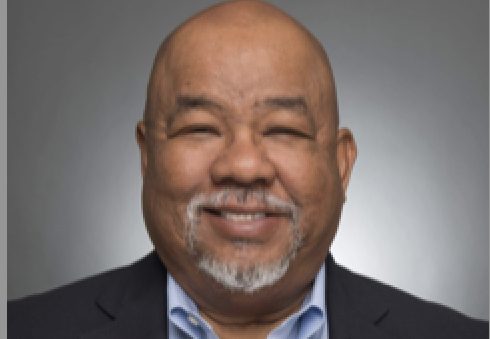
Medi-Cal, California’s version of the federal medical assistance program Medicaid, has announced that it is expanding access to maternal health, including doula services.
The expansion is expected to have a critical impact on the health of Black mothers and expectant moms. Nearly half of Black Californians are enrolled in Medi-Cal.
Black mothers are approximately four times more likely to die than their White counterparts to die from pregnancy-related complications, according to The California Department of Public Health (CDPH). The Black maternal mortality rate is three times higher than the rate of mothers of White Hispanic and Asian moms. And Black babies are two times as likely to die before their first birthday than White babies.
Erica Holmes, Chief of Benefits Divisions for the California Department of Health Care Services spoke during an online news briefing in June organized by Ethnic Media Services (EMS) to provide more details about Medi-Cal’s expansion into the doula space.
Related Stories
Pasadena African American Film Foundation Holds Black August Film Festival
Fannie B. Bailey Foundation Hosts Backpack Giveaway
“The department has issued a standing recommendation for doula services. Medi-Cal members don’t have to get a separate written referral for services. All they need to do is find a doula who accepts medical to start receiving care. The department also has a doula directory where members can find doulas who accept medical by county.”
According to Medi-Cal, the doula services are available to expectant moms as a birthing care pathway for members who elect to use it from conception through 12 months. It is also available to new moms with services such as postpartum care, parent-child dyadic care, and other benefits.
Kairis Chiaji, a Medi-Cal approved doula services provider with 25 Years of experience, spoke during the online news briefing, informing attendees about the value of doulas and the services they provide.
“A lot of people don’t know what doulas do. I would liken it to a personal trainer, but for childbirth. Our job is to get to know you, what your goals are for your body and baby, to help you come up with a plan and remember your plan,” she said.
Doulas are trained professionals who provide physical, emotional and informational support to patients before, during and after childbirth. In the past, their services were not covered by most medical insurance plans.
Now with Medi-Cal’s new expansion, they are.
Public health professionals in California largely agree that doulas are essential to closing racial and ethnic disparities in outcomes particularly for Black, American Indian, Latino, Asian American and Asian Pacific Islander parents and infants. They help improve birth outcomes and reduce the number of c-section births, epidurals, premature deliveries and prevent post-natal problems like low birth weight, anxiety, and labor length.
Chiaji spoke about the value a doula of color brings to the birthing process. The disparities in care and service women of color experience in medical care are well documented. Chiaji says her practice prioritizes Black and indigenous women.
“As people of color and community members, we also have shared experience with our clients. We have been those birthing people in the various environments,” she added. We have encountered the same language or culture barriers, we have had the same unanswered questions and understand the benefit of having someone who not only can explain it but really be a bridge between the community member and the birthing environment, especially in hospital settings.”
Due to the Medi-Cal expansion, doulas will now be reimbursed at the same rate as other service care providers, which Chiaji says is a game changer for individuals in the field.
“We were able to move our state into a position of understanding that a large part of healthcare is leveraging relationships. And the group who have the ability to found and maintain those relationships are birth workers.”
As of June, 455 group and individual doula applications had been approved in California with 336 of those being approved individual doulas.
“We know that our country and our state are in a maternal health crisis,” said Chiaji. “There are injuries and losses that statistics say 80% of which are preventable. As a birth worker and doula, we are able to fill in a lot of those gaps. We are able to amplify the voices of families, we are able to recognize with something is not ok earlier on. We’re able to help our clients navigate healthcare.”







